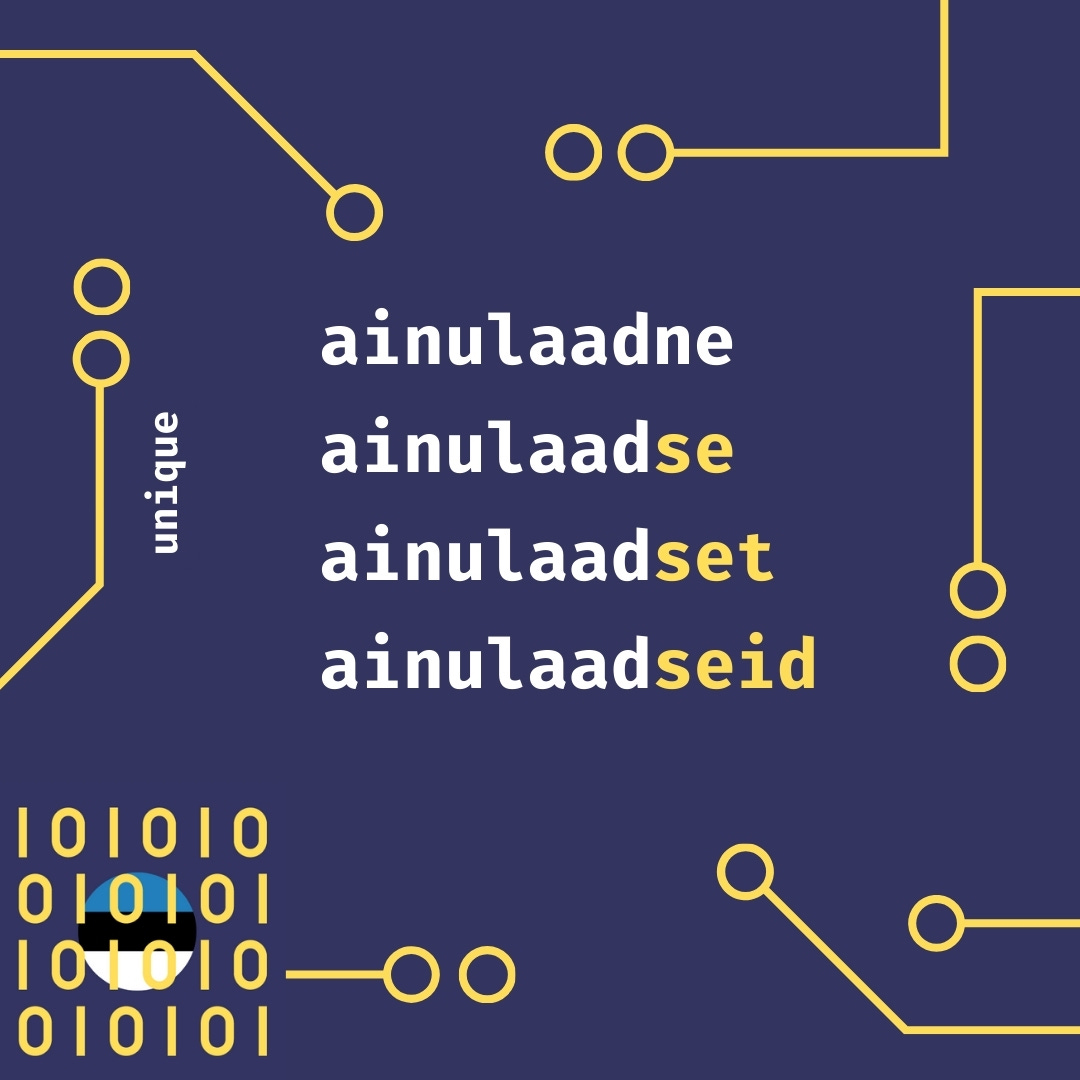Vocab: ainulaadne
unique
unique, one of a kind, exceptional
Building blocks
ainu - "one," "single," or "unique"
laadne - "-like" or "-ish"
If you combine the meanings of these two words, “ainulaadne” literally translates to “one-like” or “single-ish”. Idiomatically it has come to mean “unique” or “one of a kind”
How to use it:
Describing a unique object or item:
"Ta leidis antiigipoest ainulaadse kella." (He found a unique clock in an antique store.)
Talking about a one-of-a-kind experience:
“Meil oli täna ainulaadne võimalus kohtuda presidendiga.” (Today, we had the unique opportunity to meet the president.)
Describing a person's unique qualities or talents:
“Ta on ainulaadne muusik, kellel on oma unikaalne stiil.” (He is a unique musician with his own distinctive style.)
Discussing a unique place or location:
“See rannikuala on ainulaadne oma kauni looduse poolest.” (This coastal area is unique for its beautiful scenery.)
Examples
Me kogesime täna midagi täiesti ainulaadset
Literally: “We experienced today something completely unique”
Idiomatically: “We experienced something completely unique today”
Me - Pronoun - Nominative Pl, "We"
kogesime - Verb - 1P Past Pl, "experienced"
täna - Adverb - Indeclineable, "today"
midagi - Pronoun - Partitive Sg, "something"
täiesti - Adverb - Indeclineable, "completely"
ainulaadset - Adjective - Partitive Sg, "unique"

